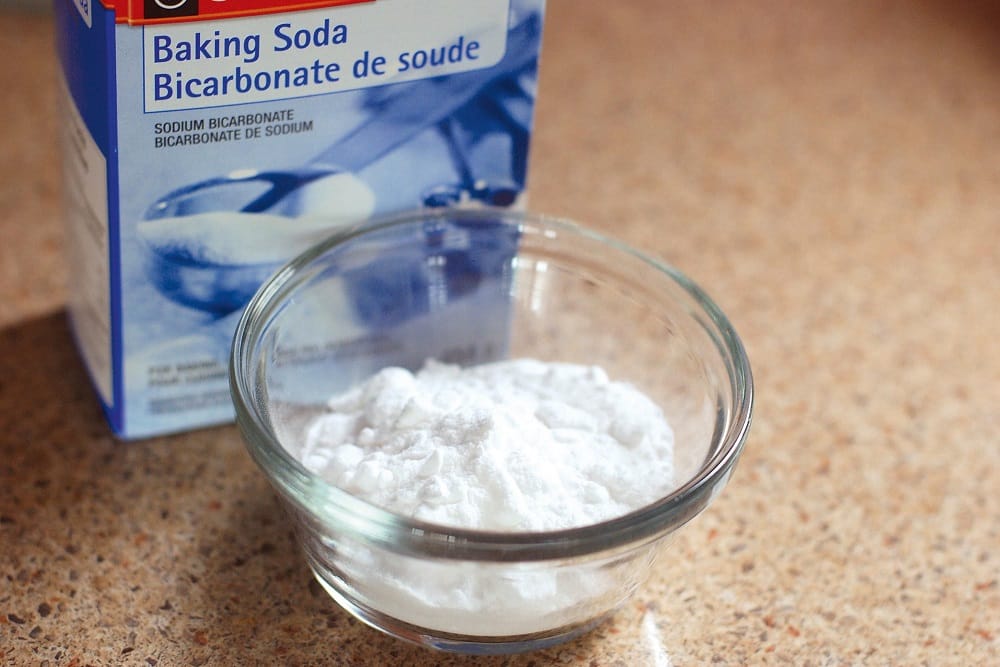You’ll surely need baking soda and vinegar if your kitchen or bathroom sink is slow to drain. Many people have heard about this trick. Pour hot water down your drain, add equal parts baking soda and vinegar, stop the drain, and let it sit for at least half an hour before flushing it out with hot water.
The assumption is that the chemical reaction will exert pressure on the impediment and cause it to corrode, breaking it down and clearing the pipe. However, some experts claim that because the pressure is allowed to leave through the open drain, it has little effect on the clog. Therefore, they feel hot water is the only thing that can clear the clog. However, they also feel that baking soda should not be used in metallic pipes since it can damage the surface.
When it comes to battling grease-clogged drains, the effervescent mix of baking soda and vinegar is ineffectual. Because baking soda is a base and vinegar is an acid, when they react chemically, they produce water with a trace of salt, not a fat-degrading drain cleaner.
When a clogged kitchen sink refuses to drain, you may feel helpless. When water is backing up, and you have a counter full of dirty dishes to clean, it’s tempting to call Lynwood plumbers to handle the problem for you. But first, try these four alternatives if baking soda doesn’t work.
1. Dish Soap and Hot Water
Dish soap and hot water are other natural techniques to unclog a clogged drain. This procedure will work nicely if the obstruction is caused by grease. Using a squirt bottle, squirt a good amount of soap down the clogged drain. Then pour hot water from a pan or kettle down the drain.
This should clear your drain of any oily obstructions. This should be done at least once a week to avoid drain obstructions.
2. Plunger and Plumbing Snake
If your drain appears to be clogged, plunge it with a plunger. To ensure that the plunger seals around the drain, fill your sink with 3 to 4 inches of water. If you have a double sink, you should then place a damp towel over the other drain opening. Then you can start vigorously plunging up and down. If the water doesn’t drain after that, you should move on to the following step.
Remove a few inches of cable with a snake drain by loosening the setscrew at the snake’s tip. The drain snake can then be spun down the drain line while the screw set is tightened. To feed into the drainpipe, tighten the setscrew and spin the crank clockwise. Any obstructions in your sink should be removed using this method.

3. The Wet and Dry Vacuum
If you have a wet/dry shop vacuum, you can use it to unclog drains. Set the vacuum liquids setting first. To avoid a smear, cover the vent. Then, over the drain, make the tightest possible seal. You may be resourceful and use an old plunger head for this. The vacuum can be powerful enough to pull the clog up the pipe and into the vacuum bag when the vacuum is set to its highest setting. It’s not always successful, but it’s worth a try.
4. Take Apart and Clean the U-Pipe (Drain Trap)
Clogs and buildup are common in the U-shaped pipe located under almost every sink, referred known as the drain trap. It’s probably a good idea to take it apart for a good cleaning now and again, but it’s especially handy if your drain is slow or clogged.
- Obtain a plumber’s wrench and an empty bucket. Put the bucket underneath the U-pipe to capture any trash or water.
- Loosen the slip nuts at either end using the wrench, then remove them while holding the pipe in place.
- Flip the pipe over and dump it into the bucket once the slip nuts are removed. Clean the accumulation inside the trap using a wire brush or an old toothbrush. It may be easier to handle large clogs with your fingers, but be sure you’re wearing rubber gloves.
- Clean the regions around the connecting points and then rinse the U-pipe with hot water. Remember to keep the pressure low because the drain will discharge directly into your bucket.
- Reassemble the drain trap, making sure the nuts are securely fastened.
If you’ve tried everything and your drain is still stuck, you might want to hire a professional plumber to help you. It might be a lifesaver to hire plumbers who have all the necessary instruments and do not use harsh chemicals to unclog blocked drains. They are capable of promptly and effectively resolving your issue. You won’t be able to unclog every clog on your own, so save yourself time and aggravation. Another reason to hire professionals is that clogged drains raise the risk of your pipes bursting, exacerbating the problem and increasing the overall expense of the process.

